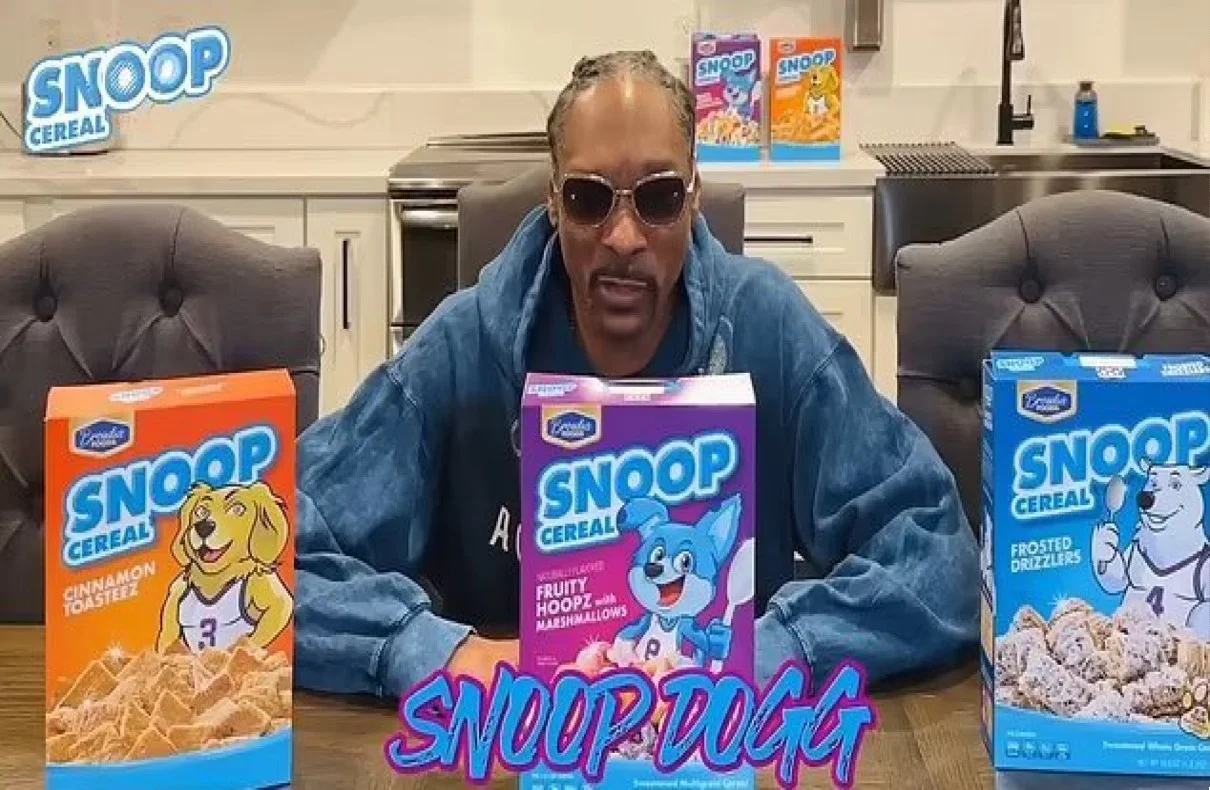
In the competitive world of food production and distribution, even celebrities like Snoop Dogg and Master P face hurdles and challenges. Recently, the renowned American rappers made headlines as they filed a lawsuit against retail giant Walmart and food manufacturing company Post Consumer Brands, accusing them of sabotaging their cereal brand.
Snoop Dogg, born Calvin Broadus Jr., and Master P, whose real name is Percy Miller, are not only successful musicians but also entrepreneurs. In 2022, they founded their own food production company called Broadus Foods. The company aims to create opportunities for minority-owned food products and offers a range of items, including breakfast cereals, pancake mix, and maple syrup.
Bing Worthington dies at the age of 44: Remembering Snoop Dogg’s Beloved Brother
The lawsuit filed by Snoop Dogg and Master P claims that Walmart and Post Consumer Brands engaged in a deliberate effort to hinder the success of their cereal brand, Snoop Cereal. According to the complaint, Post Consumer Brands initially approached the rappers with an offer to buy their cereal brand. However, when the rappers refused to sell their company, a partnership was formed instead. Post Consumer Brands would produce and distribute the products to major retailers, with Walmart being one of them.
The trouble began when Snoop Cereal was launched in Walmart stores in July 2023. The cereal quickly gained popularity and became an immediate success. However, customers soon noticed that the product was consistently unavailable on the store shelves. Many Walmart stores showed online and in the employee’s in-store application that Snoop Cereal was sold out or out of stock. Surprisingly, further investigation by store employees revealed that several boxes of Snoop Cereal were being intentionally held in the stockrooms and not made available to customers.
The lawsuit claims that Walmart and Post Consumer Brands worked together to ensure that Snoop Cereal would never appear on the store shelves. The rappers argue that their cereal should have been treated equally to other Post branded cereals and placed prominently on Walmart’s shelves. Instead, they allege that their product was deliberately kept hidden in the stockrooms. This alleged sabotage resulted in significant losses for Broadus Foods, as the cereal was unable to reach consumers as intended.
The alleged actions of Walmart and Post Consumer Brands had a detrimental impact on Broadus Foods. The lawsuit states that the deliberate withholding of Snoop Cereal from store shelves resulted in exorbitant costs for the company, eliminating any chance of making a profit. Broadus Foods is seeking damages of over $50,000 and has requested a jury trial to address the injustice they believe they have faced.
In response to the allegations, both Walmart and Post Consumer Brands have defended their actions. Walmart issued a statement emphasizing their history of supporting entrepreneurs and the various factors that can affect the sales of a product. They expressed their intention to respond to the court appropriately once they have received the full complaint.
David Beckham’s Supportive Gesture for Victoria’s Gym Accident: A Clean Break
Post Consumer Brands also released a statement expressing disappointment that consumer demand did not meet expectations. They highlighted their excitement about partnering with Broadus Foods and the substantial investments they made in the business.
Benjamin Crump, a prominent civil rights lawyer, is representing Snoop Dogg and Master P in this legal battle. Crump condemned the alleged actions of Walmart and Post Consumer Brands, describing it as a “blatant disregard” for a black-owned business. In a video posted online, Crump accused the companies of intentionally keeping the cereal in the back storerooms and preventing it from reaching consumers.
The lawsuit filed by Snoop Dogg and Master P against Walmart and Post Consumer Brands has garnered public attention and support. The allegations of sabotage have sparked discussions about the challenges faced by minority-owned businesses in the food industry and the need for fair practices.
